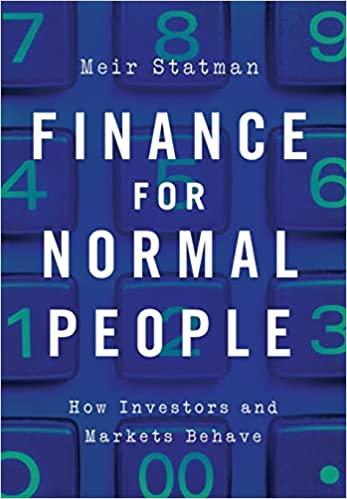Question
An interest-rate swap is an exchange of a fixed rate against a floating rate. One party agrees to pay the other a fixed rate in
An interest-rate swap is an exchange of a fixed rate against a floating rate. One party agrees to pay the other a fixed rate in regular intervals until a maturity T . The other party agrees to pay a variable rate in the same intervals. Payments are multiplied by a fixed amount, called the notional. Consider a swap with annual payments and notional $1. The fixed-rate payments are pT in annual intervals until T , where pT denotes the swap rate, also known as the par rate. The first variable-rate payment is r1, the one-year spot rate at the time the swap is agreed. The second variable-rate payment is 1r1, the one-year spot rate one year after the swap is agreed. The variable-rate payment in year T is T 1r1, the one-year spot rate T 1 years after the swap is agreed. A swap involves no cash flows at the time of agreement. Therefore, the present value of the fixed-rate payments must equal that of the variable-rate payments. (a) Compute the present value of a cash-flow stream that consists of the variable-rate payments plus a payment of $1 in year T . (b) Determine the par rate pT . (c) Suppose that the 1-year spot rate is 5%, the 2-year spot rate is 4.5%, and the 3-year spot rate is 4%. Determine p1, p2 and p3.
Step by Step Solution
There are 3 Steps involved in it
Step: 1

Get Instant Access to Expert-Tailored Solutions
See step-by-step solutions with expert insights and AI powered tools for academic success
Step: 2

Step: 3

Ace Your Homework with AI
Get the answers you need in no time with our AI-driven, step-by-step assistance
Get Started


